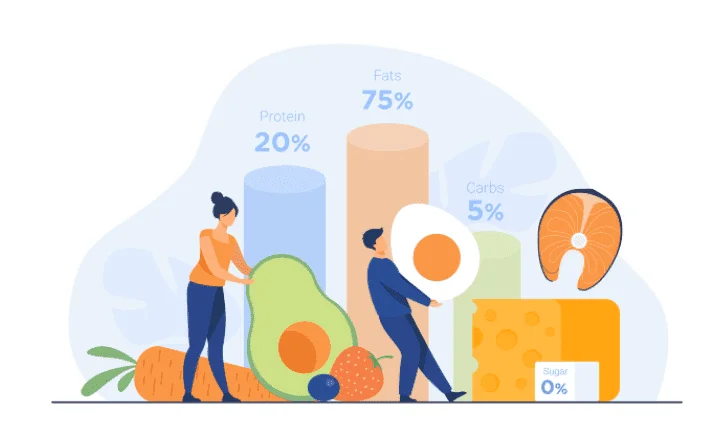Protein - A Physician's Bite
Let me start by saying that "we Indians, as a population, do not consume enough protein". A recent publication proves my point - an article in the Indian Medical Gazette reported that 9 of 10 Indians consume inadequate protein. Furthermore, they went on to report that, 91% of vegetarians had a protein-deficit diet, compared with 85% in non-vegetarians.
One of the biggest hurdle, when it comes to protein consumption is the misinformation/disinformation that surrounds it. I would like to address 4 important and basic questions:
- Why do we need protein?
- How much protein does one need?
- What does "high protein" intake mean?
- Is protein consumption harmful?
1) Why do we need protein?
We, humans, belong to the "Kingdom Animalia" - that means we need to be "mobile". As well, we do not make our own food - we are heterotrophs, so we need to acquire food, where mobility is central. Therefore, we have muscles, tendons, ligaments and bones (the musculoskeletal system). We need to pick and choose food that helps keep us mobile and agile! Immobility because of a challenge with the musculoskeletal system is an indicator of ill-health.
Protein and adequate activity/exercise are central to keeping the musculoskeletal system up-and running, throughout life.
Don't get me wrong - protein's role is not just in skeletal muscle. Protein is a crucial component of all types of muscles in our body, including the heart muscle, as well as a component of antibodies, enzymes and skin, to name a few. Therefore, consuming inadequate protein affects the entire body, and not just one system.
2) How much protein does one need?
According to the Indian Council of Medical Research's (ICMR's) recommended dietary allowance (RDA) recommendations, the basic protein required by an adult Indian is 1 gram of protein/kg body weight/day (P/kgBW/D).
My bite:
- If a person weighs 70 Kgs, she/he requires 70 grams of protein per day.
- It is extremely important to understand that this 70 grams of proteins per day is a "basic, minimal requirement", and not the maximum.
- This means that this 70 grams of proteins need to be ingested regardless of exercise or extra activity — this is the minimal required amount to keep this person healthy.
3) What does "high protein" intake mean?
Using the term "high protein", without defining what is "high" is the challenge. "High protein" is used extremely loosely these days.
In my opinion, "high protein" is consuming 1.5 grams of P/kgBW/D, and above. That means a person weighing 70 kgs will have to consume 105 grams of protein/day to achieve 1.5 grams of P/kgBW/D. This increased intake of protein is essential for extreme sports, bodybuilding or body sculpting.
We Indians, considering the type of food we consume, would find it extremely challenging to consume 1.5 grams of P/kgBW/D or more with regular food.
Try and calculate how much of each, or more of the following food items a 70 kg person will have to consume to reach a goal of 105 grams, or even the basic 70 grams of protein a day:
As a reference-point, according to data published by the NIN:
- 100 grams of uncooked red rajmah has 20 grams of protein + 49 grams of carbohydrates.
- 100 grams of uncooked white cowpea has 21 grams of proteins + 54 grams of carbohydrate.
- 100 grams of paneer contains 18 grams of protein + 12.5 grams of carbohydrates.
- 100 grams of whole egg contains 13 grams of proteins + negligible carbohydrates.
- 100 grams of chicken leg contains 19 grams of proteins + negligible carbohydrates
Most of us do not consume as much protein as we think we do. Therefore, understanding how much protein one’s food contains, and quantitating intake is absolutely crucial!
4) Is protein consumption harmful?
Short answer, no!
- The kidney has been the main organ-of-concern with protein intake. One thing has to be clear — the RDA of 1 gram of P/kgBW/D is not at all a concern for individuals with a normal, functioning kidney.
- Even diabetics and persons with chronic kidney challenges need adequate protein to maintain health: The Canadian Diabetes Association (CDA) recommends 1.0–1.5 grams of P/kgBW/D for the general population with type 2 diabetes; the CDA and American Diabetes Association both recommend a reduction of protein to 0.8 grams of P/kgBW/D for those with chronic kidney disease.
- I defined “high” protein as 1.5 grams P/kgBW/D and above. There is no published evidence that a diet containing up to 2.8 grams of P/kgBW/D produces adverse effects on kidney metabolism in athletes. As well, no known association of protein intake with progressive renal insufficiency has been determined [6]. In addition, a series of controlled investigations spanning up to one year in duration, utilizing protein intakes of up to 2.5–3.3 grams of P/kgBW/D in healthy resistance-trained individuals consistently indicate that increased intakes of protein exert no harmful effect on blood lipids or markers of kidney and liver function.
